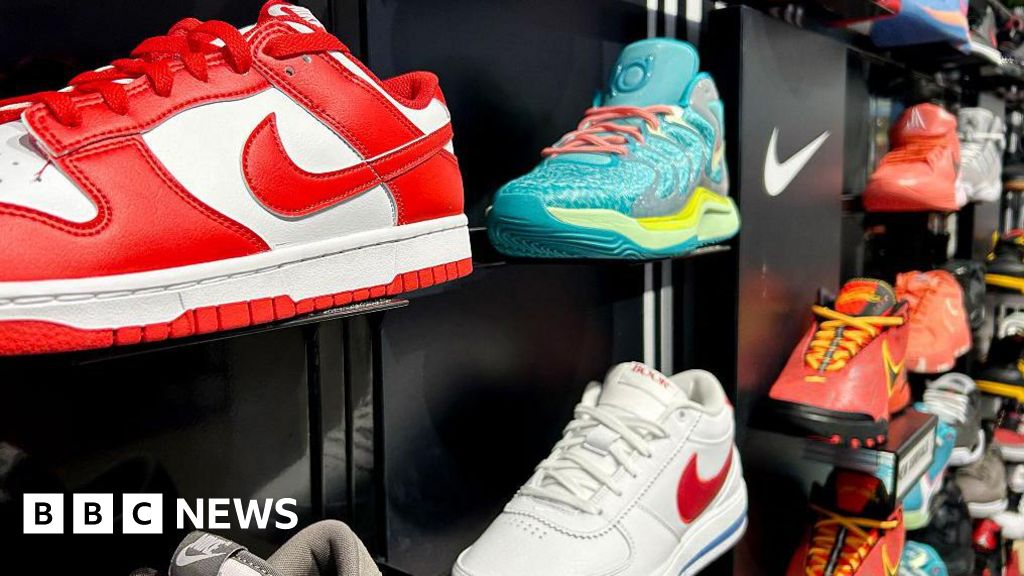- Forex
Portable Air Conditioner 8,000 BTU$180$190Save $10with coupon
时间:2010-12-5 17:23:32 作者:Audio 来源:Tennis 查看: 评论:0内容摘要:How to say tea around the worldHow to say tea around the world
“We have continuous relationships with our clients in Russia and we are on the side of business in this conflict,” he said.He connected Al Jazeera to a company based in Russia, Kids’ Times, where a sales manager claimed to have access to almost any item of Lego “through their partners based in Europe”.

In a statement to Al Jazeera, Bilax said that the company “has never traded Lego” and provides only logistical services for third parties.Lego said in a statement to Al Jazeera that it has “taken steps to increase visibility and control over any potential resale activity by retail partners which includes adding a clause to existing retailer contracts prohibiting existing retail partners from supplying to Russia”.Businesses outside Russia willing to supply sanctioned goods directly to Russian customers are not difficult to find.

Styleout Watches and Jewellery, a jewellery store in Dubai that sells Rolex and other premium watches, told an Al Jazeera journalist posing as a buyer that it was “more than happy” to deal with a Russian client and had “lots of them”.Rolex announced a boycott and ceased supplies to Russia after the Ukraine invasion and its watches are considered luxury goods under EU and US sanctions, although the UAE has not joined sanctions against Moscow.

When approached directly by Al Jazeera for comment, a representative said the company did "not need marketing or advertisement” and refused to discuss the matter further.
Kiv.Kz, a wholesaler in Kazakhstan that sells household appliances, said it also had many clients from Russia, some of whom make bulk purchases of goods that are not officially available in the country due to sanctions.This is partly due to the drawbacks of AI, which reinforces cultural and other biases in the data it draws from.
David Leslie, director of ethics and responsible innovation research at the Alan Turing Institute, the United Kingdom centre for data science and AI, cautions that using data that was initially biased against marginalised groups could create revisionist histories or false memories for those communities. Nor can “simply generating something from AI” help to remedy or reclaim historical narratives, he insists.For DDS, “It is never about the bigger story. We are not reconstructing the past,” Garcia explains.
“When we talk about history, we talk about one truth that somehow we are committed to,” he elaborates. But while synthetic memories can depict a part of the human experience that history books cannot, these memories come from the individual, not necessarily what transpired, he underlines.The team believes synthetic memories could not only help communities whose memories are at risk but also create dialogue between cultures and generations.
- 最近更新
- 2025-07-07 08:32:34Key differences between saving and investing your money
- 2025-07-07 08:32:34restated March's rate projections
- 2025-07-07 08:32:34How the Fed rate affects your savings accounts
- 2025-07-07 08:32:34The 5-Minute Tomato Salad I Can't Stop Making
- 2025-07-07 08:32:34Checkers: Casual StylePlayMasque Publishing
- 2025-07-07 08:32:34Solitaire: Spider ChallengePlayMasque Publishing
- 2025-07-07 08:32:34Bird Word MahjonggPlayMasque Publishing
- 2025-07-07 08:32:34Solitaire: SpiderPlayMasque Publishing
- 热门排行
- 2025-07-07 08:32:34No-Touch Accurate Forehead Digital Thermometer
- 2025-07-07 08:32:34our guide to the top car insurance myths
- 2025-07-07 08:32:34Interest rates on 60-month new car loans in the United States from January 2014 to May 2025
- 2025-07-07 08:32:34our comprehensive guide to full-coverage car insurance
- 2025-07-07 08:32:34calculated using your highest 35 years of earnings
- 2025-07-07 08:32:34State of the Automotive Finance Market: Q4 2024 [PDF]
- 2025-07-07 08:32:34our guide to age-smart ways to save on home insurance
- 2025-07-07 08:32:34How to find a trusted retirement advisor for peace of mind in your golden years
- 友情链接
- Wetlands founder 'wouldn't recognise' site today Butt-lift injector banned from carrying out procedures Doctor sent to Welsh beach in summer for freezing actors Coastlines in danger even if climate target met, scientists warn Elon Musk leaves White House but says Doge will continue Solar farm and energy store unanimously approved Fans descend on village for Mike Peters' funeral Scared and malnourished - footage from Gaza shows plight of children and aftermath of Israeli strike Book of the year finalists show 'incredible talent' Drought declared across north-west England Theatre's £5m revamp plans submitted to council Weekly quiz: How did this ship end up in a Norwegian garden? No sequins or dancing at EU summit - but it'll be an extravaganza nonetheless An Indian teacher was killed - then he got falsely labelled a terrorist Rail network adds defibrillators to all platforms Mark Gordon previously convicted of rape in US, retrial told Trump commutes gang leader's sentence in flurry of pardons Inside the secretive world of Zara Rushdie 'pleased' with attacker's maximum sentence How native breeds 'restore and protect' landscapes Shots fired at Irish peacekeepers in Lebanon New robotic technology brings hope to men with prostate problems How 'laughing gas' became a deadly - but legal - American addiction Is the government meeting its pledges on illegal immigration and asylum? Massive solar farm gets green light at High Court Gold is booming - but investors lured in by the hype could lose out, warn experts Council to spend £2.5m on making homes greener Wales 'confident' of hosting Euro 2028 opening ceremony South Africans pay tribute to acting 'icon' Chweneyagae who died age 40 Busy hurricane season expected as forecasters fear Trump cuts
